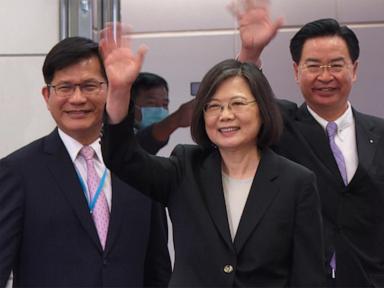Taiwan’s Foreign Minister, Lin Chia-lung, has arrived in the Philippines leading a high-level delegation of investors, igniting a protest from China. This visit, described by Philippine officials as occurring in Lin’s “private capacity,” has raised tensions amid ongoing disputes in the South China Sea.
The delegation, which includes Taiwanese business executives from the semiconductor and other key industries, visited Manila and the Clark Freeport Zone earlier this week. Two senior officials from the Philippine government confirmed Lin’s presence to The Associated Press but did not provide further details, citing the need for confidentiality. They indicated that Lin did not engage with political or security officials during his two to three-day stay.
China’s Ministry of Foreign Affairs responded strongly to the visit, asserting that the Philippines has breached its commitment to the “One China” policy by allowing Lin to enter the country. This policy, which the Philippines officially upholds, does not recognize Taiwan as a sovereign state. The Chinese government accused Manila of enabling “Taiwan independence” advocates and warned against “playing with fire” regarding China’s core interests.
In a statement, the Department of Foreign Affairs in Manila reiterated the Philippines’ adherence to the “One China” policy, emphasizing that their economic and people-to-people interactions with Taiwan occur within this framework. The department clarified that no Taiwanese official was recognized as part of Lin’s business delegation, suggesting that Lin’s visit was purely commercial.
Beijing’s protest included a stark warning, stating, “There is a price to pay for trampling on China’s red line, and all consequences arising therefrom will be borne by the Philippines.” The Chinese government urged the Philippines to abandon what it termed a “wrong course” and to rectify its actions immediately.
As the Philippines navigates its relationship with both Taiwan and China, this incident highlights the delicate balance it must maintain in the face of regional tensions. The interactions with Taiwan, particularly in fields like trade and investment, remain significant for the Philippines, even as it adheres to its formal diplomatic commitments.
This situation underscores the complexities of international relations in the region, particularly regarding territorial disputes and economic partnerships. As both nations express their positions, the future dynamics between Taiwan, China, and the Philippines will continue to evolve amid these challenges.
